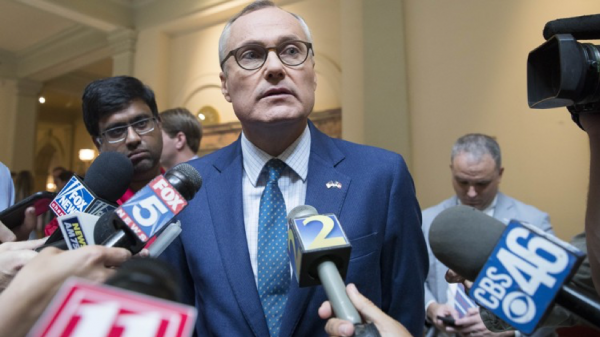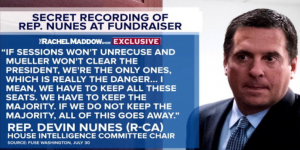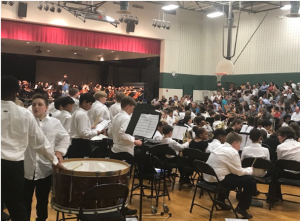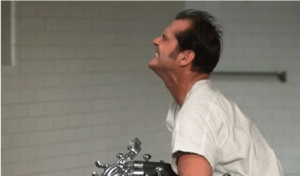Great content knows no bounds
Don’t confuse telling great stories with their delivery channels
I recently attended a luncheon presentation by Scott Pelley at the Atlanta Press Club. Scott has enjoyed a distinguished history in broadcast journalism, most recently as the anchor for “The CBS Evening News.” Although no longer in that chair, he continues to work with CBS on “60 Minutes.”
I attended his presentation because I wanted to hear what he had to say about “60 Minutes” vaunted investigative journalism. During my tenure at Georgia Tech, I appeared on a “60 Minutes” story and was slack jawed at the powerful bias and lack of objectivity in the story.
So I showed up cynically curious if they’d changed their ways. Fortunately, I never had a chance to find out.
 What I heard instead was a stellar illustration of superb content—engaging storytelling—by Mr. Pelley. Appearing to promote his book, “Truth Worth Telling,” Pelley highlighted important topical subjects.
What I heard instead was a stellar illustration of superb content—engaging storytelling—by Mr. Pelley. Appearing to promote his book, “Truth Worth Telling,” Pelley highlighted important topical subjects.
But it was his answer to a question someone asked about whether “60 Minutes” plans to change its approach to reporting to attract a larger share of a younger audience with shorter attention spans and smaller viewing screens, that truly resonated with me.
“No,” he responded, much to my surprise.
His elaboration as to why made considerable sense and serves as an important reminder to all of us in the business of telling stories.
Content remains king, he opined. Never confuse a great story with how you deliver that content to your audience.
He then proceeded to deliver 30+ minutes of taut, compelling storytelling. He began with a riveting recitation of a segment in his book about a 911 call on 9/11 between a woman on the 83rd floor of Tower 2 and a 911 operator, against a backdrop of a NYFD Battalion chief making his way toward that floor in a smoky tower stairwell. There wasn’t a sound in the room as Pelley dramatically recounted the terrifying narrative of those three people. Even though we all knew how the story would end, we couldn’t help but cling to every word — or hope for a better ending.
In another segment, he recounted an interview with a survivor of the BP Horizon oil-drilling platform that exploded in a fiery hell of human and environmental catastrophe and a life-saving encounter with a co-worker he had on the bridge of that drilling platform more than 100 feet atop the Gulf. These two survived as we could see from the interview Pelley conducted after the disaster. But his ability to punctuate his story with vivid context and dramatic vocals kept all of us edging forward in our dining chairs.
Yes, we should be innovative in how we use technology. Yes, we should take advantage of every channel that allows us to find our audiences where they exist. Yes, we should utilize multiple media to deliver our content in the most appealing fashion possible. But what you write, how you read it and the perspective you bring to that content matters … profoundly.
A recent article in Storybench, a publication of Northeastern University’s School of Journalism, re-enforces Pelley’s point. “The use of mobile and social media tools for gathering info, distributing stories, and engaging with audiences, that’s just what multimedia journalism is now,” said Anthony Adornato, professor of the “Mobile and Social Media Journalism” course at Ithaca College.
In other words, use social media to find your audience but do not confuse great content with innovative content delivery. If stories aren’t compelling, useful or relevant, the greatest delivery systems in the world won’t matter.
Content counts. Let’s hope that it always does.
Image courtesy of CBS Photo Archive




 But there was none of that. When one band played, everyone listened. The non-performing kids were quiet, engaged, and at the close of every song, enthusiastically applauded their peers. The sight of a gym full of tweens laughing, clapping, and enjoying the efforts of each other was unexpected.
But there was none of that. When one band played, everyone listened. The non-performing kids were quiet, engaged, and at the close of every song, enthusiastically applauded their peers. The sight of a gym full of tweens laughing, clapping, and enjoying the efforts of each other was unexpected. At the center of the shower room is a massive marble sink that looks as portable as a 1972 Buick Electra. McMurphy bets his buddies that he can lift it from its base, toss it through the window, walk downtown, grab a beer, and watch the ball game. Gradually, he convinces them to wager…against him.
At the center of the shower room is a massive marble sink that looks as portable as a 1972 Buick Electra. McMurphy bets his buddies that he can lift it from its base, toss it through the window, walk downtown, grab a beer, and watch the ball game. Gradually, he convinces them to wager…against him. 